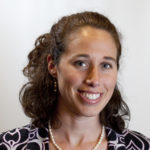
The pandemic launched the world of education into a series of twists and turns. As the pandemic cyclone slowly ebbs, educators are cautiously picking up the pieces from the storm. We are picking up pieces not only for ourselves but for our students as well. How do we reconnect with our students and colleagues? How do we accept that we only have what is presented before us and cannot simply make up lost time? How do we squeeze just a little bit more into our day because the people within our school community need us now more than ever? Are we trying to accomplish the impossible, or is this our new education reality?
Learn what we appreciate
As a school psychologist, I tell teachers that what matters to us as employees are perhaps the same things that matter to our students. Take a minute to think about what matters to you on a work day. Perhaps it is connecting with a student, a weekly shoutout over the loudspeaker for doing a great job, a colleague asking how you are doing, a free chicken finger luncheon the first day back after a vacation week or a break from the regular schedule to play any kind of game for fun with the people around you.
Now think about what your students might appreciate and remember about their school days. How does it compare with what you think matters most to you on a work day?
Perhaps it is time to ask your students what is most important to them and not make assumptions about what they might say, especially given the new education reality. If your ideas for appreciation don’t line up with theirs, that’s OK. By giving them a voice at the table and considering how you can best accommodate their needs, you’ve made your first steps toward positive changes.
View yourself as a change agent
The pandemic has shifted our reality on a daily basis. Will educational life shift back to the way it was? Some folks choose to hold out hope that we will shift back to the education of yesteryear. A better choice may be to evolve and grow along with the school environment that we already are embedded in.
One way to look at our current reality is to see ourselves as change agents during the 2020s educational evolution. We are continuing to ride out the storm of the past few years with hopes of strengthening our educational system. Hope is what carries us forward and helps to elicit change in our educational practices. Hope allows us to envision our best-case scenario minus all of the barriers.
Once we can identify what matters most to everyone, we have established a framework for growth in hope of attaining our best-case scenario (or as close to it as possible).
At the end of the day, our students are our responsibility while they are in our care. They, too, have basic human needs, regardless of the state of the world that surrounds them. Coming back to basics can ground us when our internal and/or external world feels off-kilter.
You deserve to have your needs met
As Abraham Maslow reminded us in his “Theory of Human Motivation,” as humans, we have universal psychological needs. Maslow identified physiological, safety, love and belonging, and self-esteem needs in order to ultimately reach self-actualization.
As you find your way in this new education reality, take some time to seek out what is important to your students today. However, before you ask your students, ask yourself what is important to you in your current setting. If those needs are not being met, what can be done about it? Start with one need. You are worth it. Your students are worth it.
Tammy Zielinski is a school psychologist at John Stark Regional High School in Weare, N.H. Prior to her 17 years as a school psychologist, she was an elementary-school teacher for the New York City Board of Education in Queens, N.Y. Reach out to Zielinski via email.
________________________________
Subscribe to SmartBrief’s FREE email ASCD newsletter to see the latest hot topics in education. It’s among SmartBrief’s more than 250 industry-focused newsletters.
